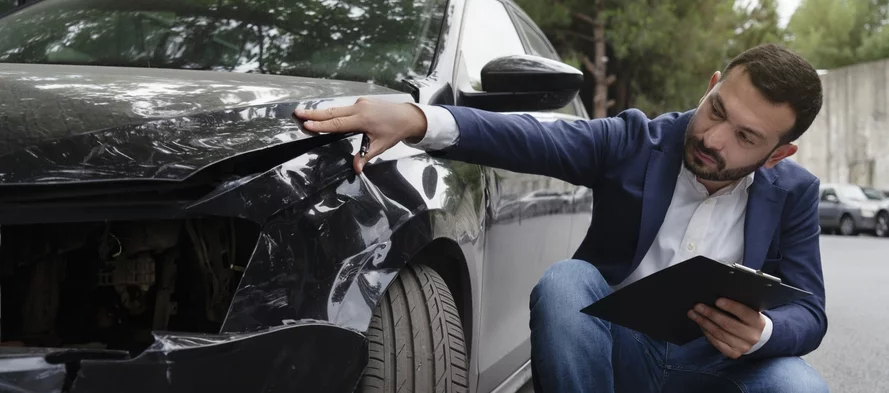Key Takeaways
- Understand the immediate steps following a car accident to safeguard your interests and well-being.
- Learn about your legal rights and responsibilities in the aftermath of a collision.
- Discover valuable resources for navigating legal and medical processes effectively.
- Explore strategies for communicating with insurance companies without compromising your rights.
Immediate Steps to Take After a Car Accident
After a car accident, check for injuries and call for medical help. If there’s traffic obstruction, move the vehicles to prevent further hazards. Reporting the accident to the authorities is a critical step, ensuring there is an official record. Opting to consult a Denver, Colorado auto accident lawyer can be beneficial for understanding your rights and actions required in the aftermath of an accident, providing a foundation for future legal or insurance claims.
Documenting the Incident
Comprehensive documentation serves as a cornerstone of any post-accident strategy. Use your smartphone or a camera to take detailed photographs of the accident scene. Capture images that include vehicle damage, road conditions, and traffic signals. Ensure multiple angles are covered, providing a complete visual account. Collecting contact information from all involved parties, including drivers, passengers, and witnesses, is equally essential. Record their names, phone numbers, and insurance details. The statements from witnesses can lend crucial support to your account if discrepancies arise later. This meticulous documentation will be vital in communicating effectively with insurance companies and, if necessary, in court proceedings.
Your Rights and Responsibilities
Being well-informed about your rights is pivotal after experiencing a car accident. You have a constitutional right to collect evidence, document the scene, and pursue adequate compensation for damages or injuries resulting from the incident. This compensation can cover various aspects such as medical bills, repair costs, and other related losses. Familiarizing yourself with state-specific regulations about car insurance and liability can shield you from potential exploitation by opposing parties.
Dealing with Insurance Companies
Insurance companies play a central role in resolving car accident claims, and interacting with them requires a strategic approach. While critical in the settlement process, these companies aim to minimize payout amounts where possible. Presenting your case with precise and factual information is essential. Start by keeping the narrative straightforward and avoid admitting fault or making statements that could be misinterpreted. Having complete documentation at your disposal will bolster your position. Additionally, you can consult an attorney before finalizing any settlement agreement, reinforcing your position against potential undervaluation and ensuring a fair outcome aligned with the damages suffered.
Choosing the Right Legal Assistance
Engaging a qualified legal representative post-accident can significantly influence the outcome of your case. Look for attorneys possessing expertise in automotive accidents, as they bring specialized knowledge that ordinary practices may lack. If necessary, these professionals can guide you through intricate processes like insurance claim negotiations or court proceedings. They will work to ensure your entitlements are fully respected. Consider experience, track record, and client testimonials when selecting counsel. Finding a commendable legal service provider can make a substantial difference in how effectively your case is managed.
Common Pitfalls and How to Avoid Them
By avoiding typical errors, post-accident can safeguard your financial and legal interests. Prematurely acknowledging fault at the scene of an accident is a cardinal error. Later on, any admission could be used against you. Delaying medical evaluations is another critical area that has to be improved. Specific injuries, like whiplash or internal trauma, may show symptoms days or weeks later, even if they initially seem minor or nonexistent. A prompt medical assessment guarantees that possible injuries are correctly recorded, assisting with future insurance or legal claims. Keeping yourself informed and using caution makes the procedure easier to handle.
Long-term Considerations
Accidents often have repercussions beyond the immediate aftermath, encompassing health and financial realms. Anticipating potential requirements for long-term medical care, physical therapy, or psychological support is crucial. These considerations could affect not only your lifestyle but also your financial situation. Having comprehensive insurance coverage that caters to these needs is vital. Discuss options with your insurance provider that cover an extensive range of post-accident assistance, ensuring you are protected against prolonged expenses. Proactive steps now can have a substantial positive impact on post-accident quality of life.
Utilizing Available Resources
Numerous resources are available to support you following a vehicular accident. Various organizations and legal and medical professionals offer specialized assistance and guidance. Recognizing and utilizing these can vastly improve the recovery trajectory. For instance, the Insurance Information Institute provides well-researched information and advice to navigate these challenging times effectively, ensuring your recovery is as smooth and informed as possible.
You may also read: A Skilled Yoga Teacher Can Elevate Your Practice

